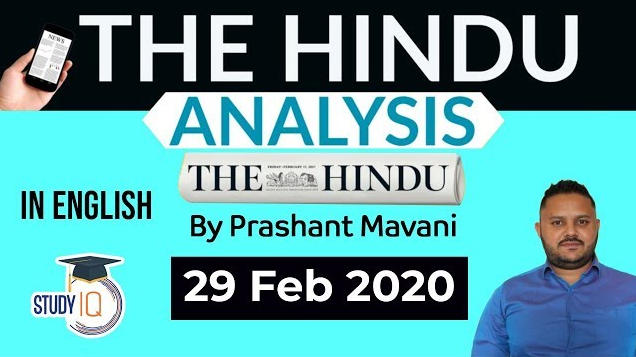Table of Contents
Regional bonding
- Wickremesinghe’s push for regional economic integration and for India-Pakistan dialogue.
- India has more or less shut down all conversations on the South Asian Association for Regional Cooperation (SAARC).
- Mr. Wickremesinghe blamed India-Pakistan tensions for bringing economic integration within the SAARC region to a “standstill”
- SAARC’s original purpose of the South Asian group was to build a platform where bilateral issues could be set aside in the interest of regional growth.
- Ranil Wickremesinghe Former Prime Minister of Sri Lanka




- Mr. Wickremesinghe suggested an even smaller sub-grouping of 4 countries with complementary economies: India, Sri Lanka, Bangladesh and Thailand, to begin the process of reducing tariffs and demolishing non-tariff barrier regimes.
- A more integrated South Asian region would be better equipped to negotiate for better terms with RCEP.
- GoI is relying more on direct bilateral deals with countries rather than overarching ones that might expose Indian markets to flooding by Chinese goods.
- For any regional sub-grouping in South Asia to flourish, it is India that will have to make the most concessions given the vast trade deficits India’s neighbours have at present, which it may not wish to do.
- However, the overall projection that India’s global reach will be severely constrained unless it is integrated with its neighbours, and tensions with Pakistan are resolved, cannot be refuted.
State lethargy amidst cough syrup poisoning
- A few days ago, we learnt that 12 children died in Udhampur district of Jammu due to poisoned cough syrup (Coldbest-PC).
- Presence of diethylene glycol in the cough syrup
- Diethylene glycol is an anti-freezing agent that causes acute renal failure in the human body followed by paralysis, breathing difficulties and ultimately death.
- This is the 4th mass glycol poisoning event in India that has been caused due to a pharmaceutical drug.
- Immediate concern for doctors, pharmacists and the drug regulators should be to prevent any more deaths.
- United States Food and Drug Administration (USFDA), in 1937, when the United States faced a similar situation with glycol poisoning, its entire field force of 239 inspectors and chemists were assigned to the task of tracking down every single bottle of the drug.
- This effort was accompanied by a publicity blitz over radio and television.
- There is no public announcement by the Drug Controller General of India (DCGI), which is responsible for overall regulation of the entire Indian market.
- India has not notified any binding guidelines or rules on recalling dangerous drugs from the market.
- A set of recall guidelines was drafted in 2012 but never notified into law.
- The trader in question marketed the same ingredient to other pharmaceutical companies?????
- As of today, we have little to no information on whether any of this is happening.
- The lackadaisical response of drug regulators in India is not surprising.
Minimum government
- Communal violence has claimed 42 lives
- Stories of human courage and camaraderie that shone through amid orchestrated mayhem offer hope.
- What rankles is the complete breakdown of governance from top to bottom in the national capital.
- The arguments of the country’s law officer were a public admission of the government’s refusal to act against members of the BJP.
- Delhi police have acted swiftly against Tahir Hussain, an Aam Aadmi Party (AAP) Councillor accused of involvement in murder and keeping sticks, stones and petrol mobs on the terrace of his house that was surrounded by a mob.
- AAP has since suspended him from membership, and endorsed the police action against him.
- Right to assemble and protest is a fundamental right, but its exercise has to be in accordance with requirements of public order.
- It is the duty of the police to ensure that constitutional guarantees are upheld on the one hand, while, on the other, life and work goes on normally for the general population.
- The Central and Delhi governments, the police, and the judiciary have come up short against these markers of the rule of law.
- They are all facing a severe deficit of trust among the citizens..
- Peace and normalcy can be achieved only through restoration of the majesty and impartiality of the government.
Come A Long Way
- UN’s landmark Beijing declaration of 1995 affirmed that women’s rights are human rights
- This week, UN human rights commissioner Michelle Bachelet observed that while there is more collective commitment to gender rights, there is also a backlash that must be contended with.
- It is worth celebrating that the number of women parliamentarians has almost doubled since 1995, that more than 150 countries have laws on sexual harassment.
- There is better data on violence against women, their presence in paid jobs has increased, child marriage has decreased.
- That said, violence itself is huge and pervasive, and women are still worse off when it comes to employment and life chances.
- Improving this situation takes constant effort, progress is never automatic.
- Our understanding of gender has evolved since the 1995 Beijing declaration – the quest for equal dignity has to include the LGBTQIA community and everyone with stakes in dismantling patriarchy.
- Patriarchy is a big beast to tackle, it rears back constantly.
NEWS
- Coronavirus infects global markets, investors dump equities
- Growth slows to 4.7% in Q3, ‘bottomed out’, says Centre
- NIA makes first arrest in Pulwama case
- Balakot strike a paradigm shift: IAF chief
- Nirbhaya case convict files curative plea in apex court
- Summer to be hotter than usual, says IMD
- Delhi water fails to clear ISO norms
- 69 killed in 79 days after Parliament nod for CAA
- India to attend U.S.-Taliban peace deal ceremony
- WHO raises global risk of virus to ‘very high’
Download Free PDF – Daily Hindu Editorial Analysis






















 WhatsApp
WhatsApp